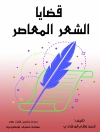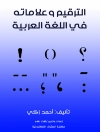It is well known that much of our modern vocabulary of sex emerged within nineteenth-century German sexology. But how were the ‘German ideas’ translated and transmitted into English culture? This study provides an examination of the formation of sexual theory between the 1860s and 1930s and its migration across national and disciplinary boundaries.
Table of Content
Contents List of Illustrations Preface and Acknowledgements A Note on Translation Introduction Disciplining Sex and Subject: Translation, Biography and the Emergence of Sexology in Germany How to Imagine Sexuality? English Sexology and the Literary Tradition When Sex is Sexual Difference: Feminist Inversion and the Limits of Same-Sex Theory Stephen Gordon Super-Invert: The Well of Loneliness Coda Bibliography Index
About the author
HEIKE BAUER is Lecturer in English Literature and Gender Studies at Birkbeck, University of London, UK, and Director of the Birkbeck Institute of Gender and Sexuality. Her research interests include nineteenth- and early twentieth-century literature and culture, and the histories and theories of sexuality, gender and ‘race’. She is editor
of Women and Cross-Dressing.












